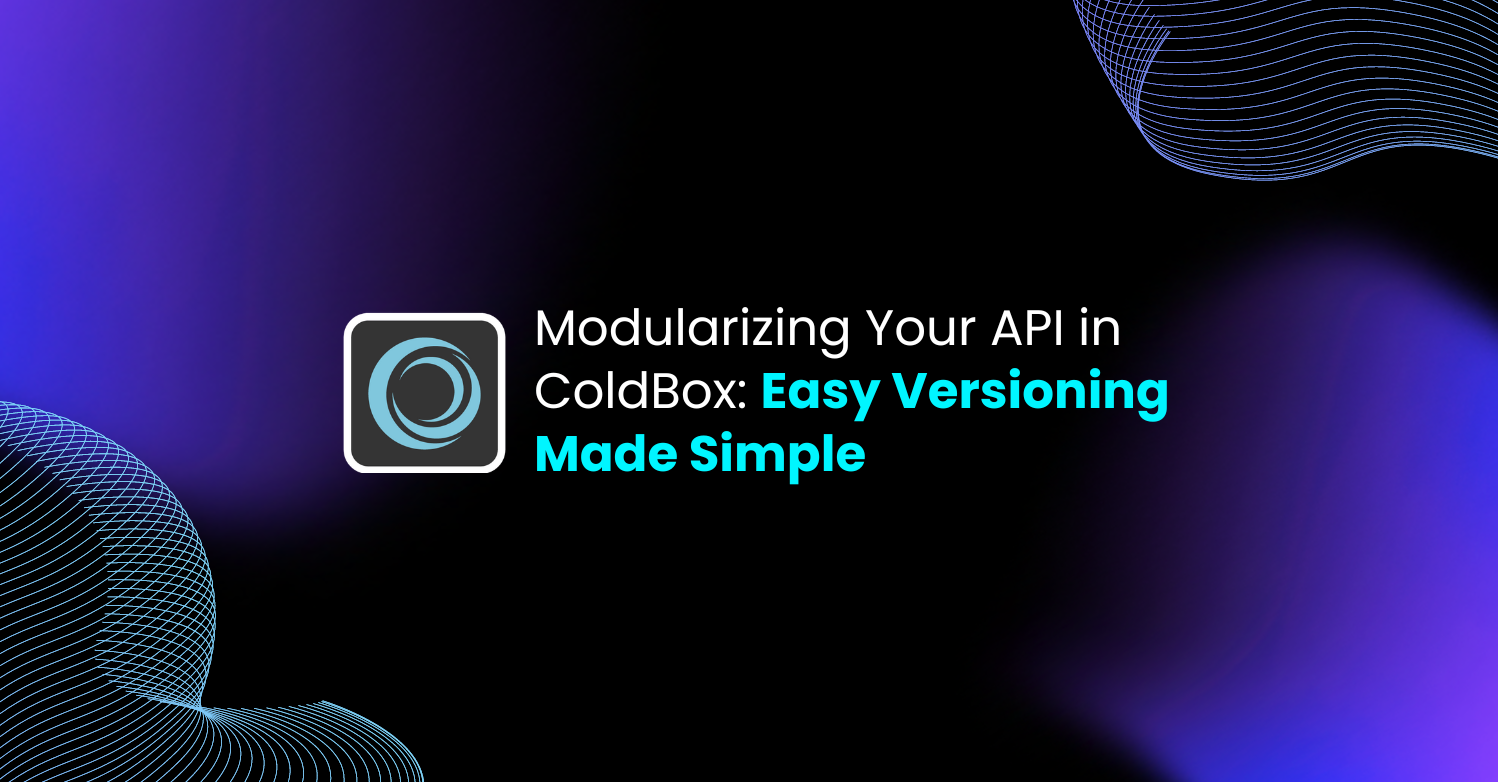Clean, maintainable, and scalable approach to managing multiple API versions within the same application.
As your application grows, maintaining and evolving your API can become a challenging task. New features, updates, and deprecations often require careful planning and execution, particularly when dealing with a large codebase. This is where ColdBox's capabilities come into play, enabling you to manage your API's versions effortlessly.
In this post, we'll explore how ColdBox allows you to break your API into versions via modularity, providing a clean, maintainable, and scalable approach to managing multiple API versions within the same application.
What is Modularization in ColdBox?
Modularization in ColdBox is the practice of breaking down your application into smaller, self-contained modules. Each module can function independently, with its own handlers, models, views, and settings, but can also seamlessly integrate with the rest of the application. This approach promotes code reusability, improves organization, and simplifies the process of adding or updating features.
When it comes to APIs, modularization becomes particularly powerful, allowing you to create versioned APIs where each version is encapsulated within its own module. This means you can have v1, v2, v3, etc., of your API running simultaneously within the same application, each version independently managed and deployed.
Benefits of API Versioning via Modularity
1. Isolation of Changes
- Each API version is isolated in its module, making it easier to introduce new features or deprecate old ones without affecting other versions.
2. Clear Separation of Concerns
- By breaking down your API into versioned modules, you ensure that each version is self-contained, with its logic, routes, and configurations, leading to a cleaner, more organized codebase.
3. Smooth Transition and Backward Compatibility
- With versioning, you can introduce new API versions while still supporting older ones, allowing clients to transition at their own pace without breaking existing functionality.
4. Reusability and Maintainability
- Common functionality can be abstracted into shared modules that can be reused across different API versions, reducing code duplication and enhancing maintainability.
Implementing API Versioning with ColdBox Modules
Let's dive into how you can implement API versioning in ColdBox using its modularization features.
Step 1: Create Your Modules
ColdBox makes it easy to create modules. For example, you can create modules for different API versions using CommandBox:
Each module will have its directory structure, including handlers, models, and views. You can now define your API endpoints in each module independently.
Step 2: Define Routes in Each Module
In each versioned module, you can define specific routes corresponding to the version. For instance, in the APIv1 module, you might have:
This way, the same endpoint can be accessed via different versions of the API, each with its implementation.
Step 3: Isolate Logic and Settings
Each module can have its logic, models, and settings. This means you can update the business logic in v2 without altering the behavior in v1. Additionally, shared logic can be placed in a core module that both versions depend on.
For example.
if v2 of your API introduces new fields or changes the data structure, you can handle this within the APIv2module without affecting APIv1.
Step 4: Deploy and Manage Versions
With modularization, deploying new API versions becomes straightforward. You can deploy the APIv2 module alongside the existing APIv1 module, allowing clients to opt into the new version when they're ready. Meanwhile, existing clients can continue using v1 until they're prepared to upgrade.
Real-World Use Case: Deprecating an API Version
Let's say you decide to deprecate APIv1. Instead of removing it immediately, you can update its module to return deprecation warnings while still serving requests. This gentle transition gives clients time to update their integrations before APIv1 is fully removed.
In the APIv1 module, you might add a deprecation notice like this:
Conclusion
Modularization in ColdBox is a powerful tool that enables you to manage API versioning in a clean, organized, and scalable manner. By breaking your API into modules, you can maintain backward compatibility, isolate changes, and smoothly transition between versions without disrupting your users. Whether you're maintaining a single API version or managing multiple, ColdBox's modular approach simplifies the process, ensuring your application remains robust and easy to manage as it evolves.
If you're ready to take control of your API's growth and maintenance, dive into ColdBox's modularization features and see how they can transform your development process!




Add Your Comment